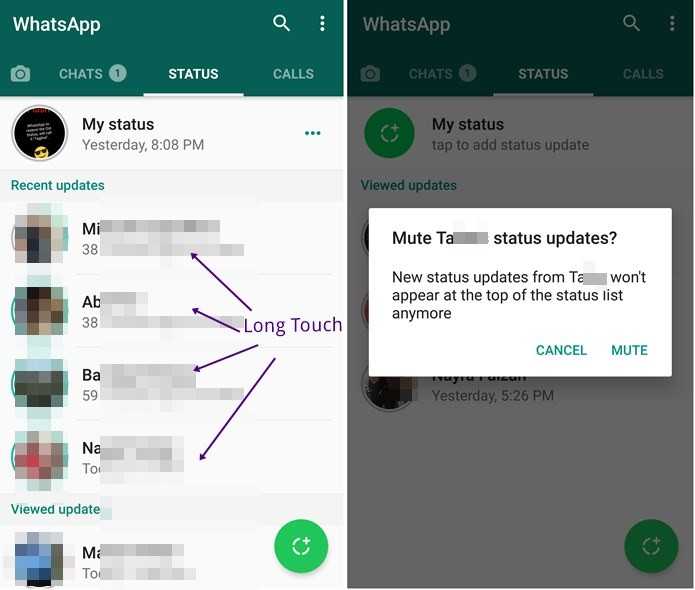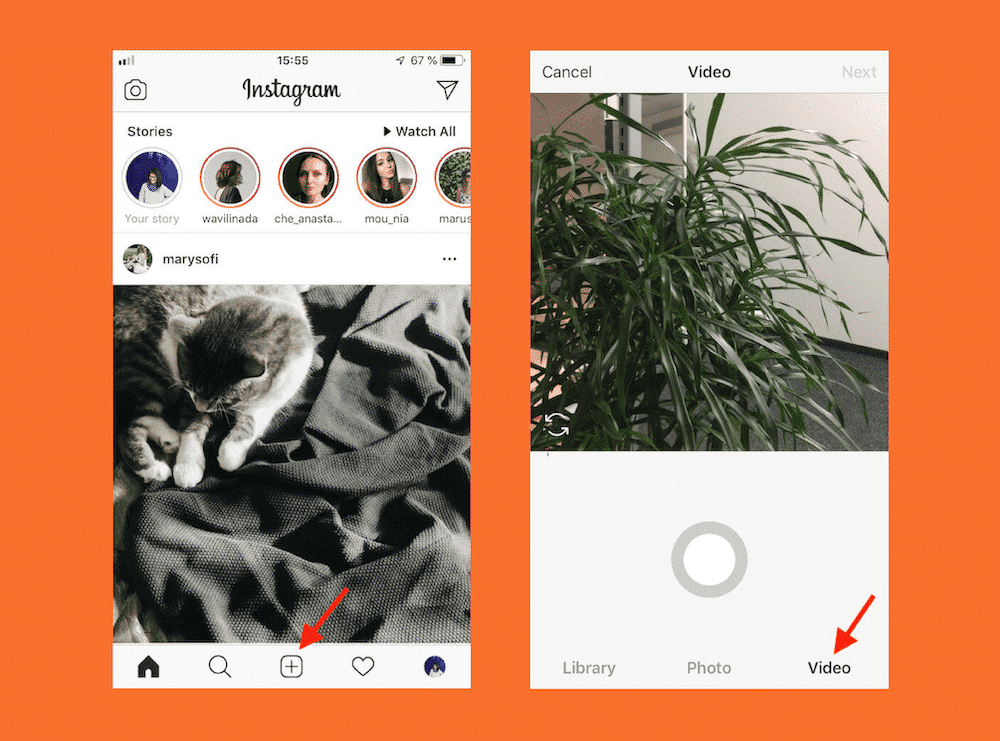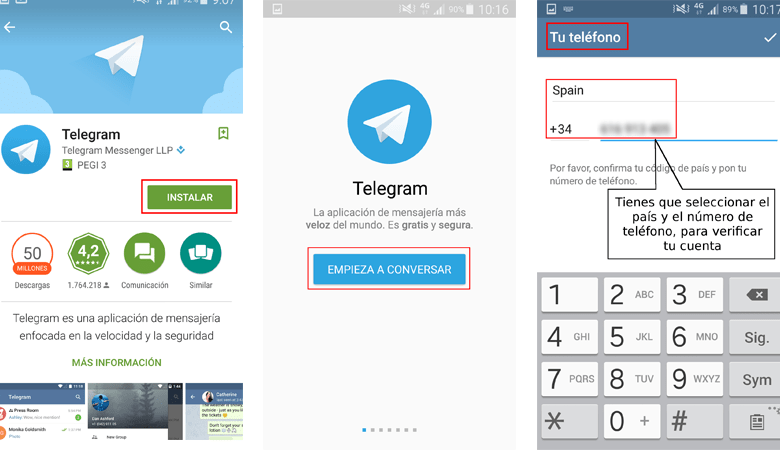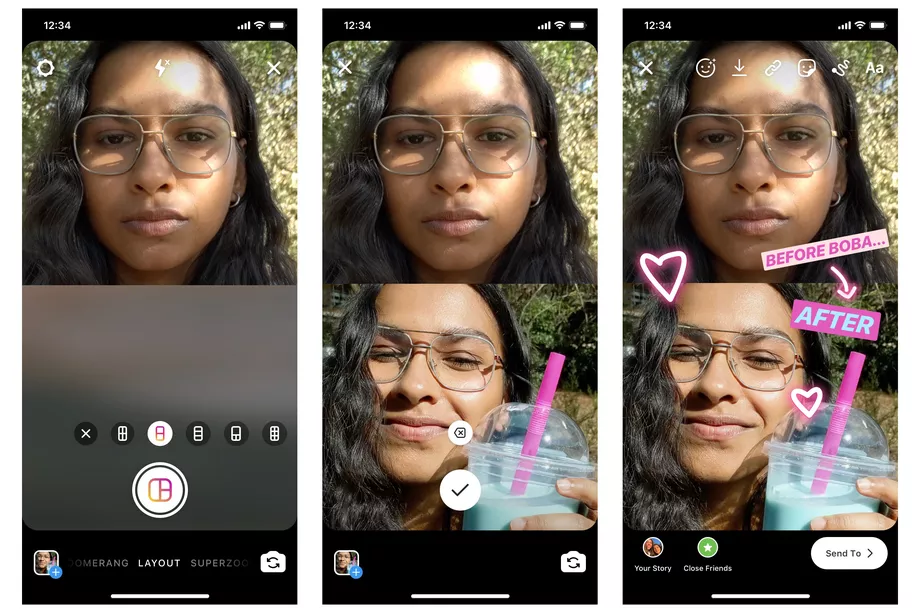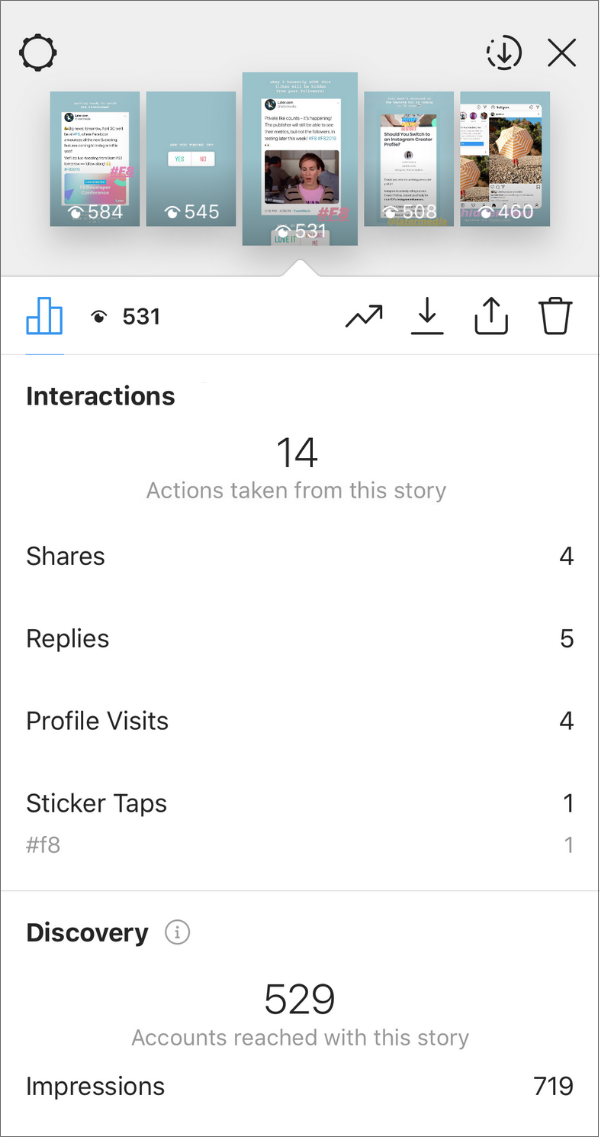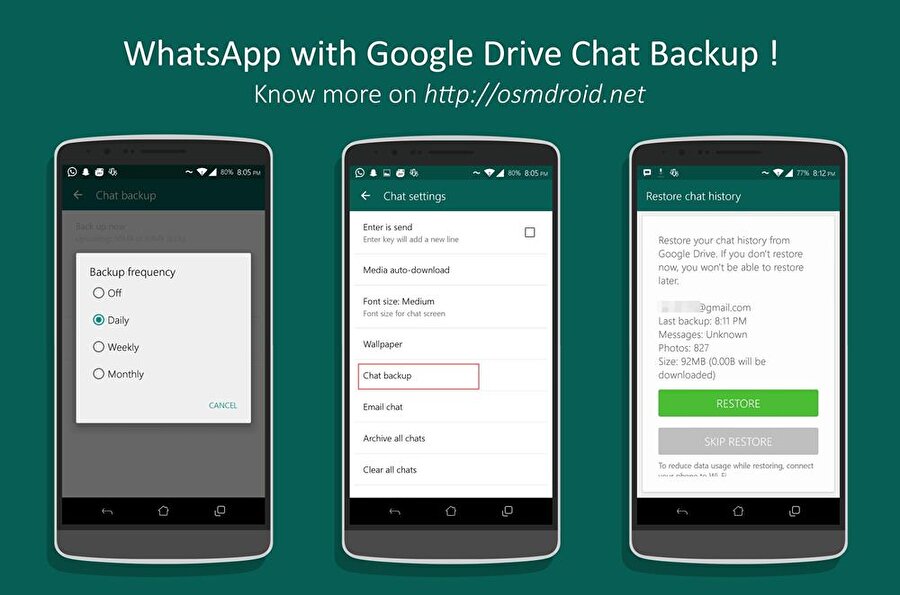How to disable facebook cookies
Stop Facebook from following you around the web
An ad pops up that’s right up your alley, or three new articles show up in your feed that are similar to something you’ve just clicked on.
Sometimes it seems like Facebook knows you personally, and that’s because it does. It has algorithms that track what you like, watch and click on. Facebook uses this information to target ads or relevant posts to users on behalf of advertisers.
Remember the story we shared last year about Kelli Burns, a mass communication professor at the University of South Florida, who claimed that Facebook listens to everything you’re saying? According to Burns, the reach of Facebook’s tracking abilities extends far beyond what the average user might expect, or feel comfortable with. (Click here to read the full story.)
But there is some good news. There are things you can do to stop Facebook from tracking your every move. Keep reading for step-by-step instructions on the settings you need to change now.
1. Stop “behavioral tracking”
Facebook’s “behavioral tracking and targeting” tracks your behavior while using the service unless you turn it off. Facebook can also use GPS paired with Wi-Fi and radio signals, beacons, cell towers and partnerships with brick-and-mortar stores to follow you when you’re offline too.
The metric is called “Store Visits,” and it all boils down to advertising dollars. The data collected about you is used to show marketers how online ads affect in-store purchases. Is that ad you saw on the side of your screen the reason you’re shopping in the particular store you’re in? That’s the answer these marketers are after.
So far, it looks like online ads do correlate to foot traffic in brick-and-mortar stores. According to Tech Crunch, one retailer reported that 12 percent of their online ad clicks turned into a visit to the physical store within seven days. That’s substantial so you can expect this sort of tracking to explode.
This notion is also fueled by ads that can connect you to the physical store, aptly called the “Store Locator. ”
”
Fortunately, you can opt-out. You never know who else might have access to this data of where you go, when you go there and what you do when you get there.
How to opt outFrom your Facebook profile, click on the drop-down menu in the upper right side (to the right of Find Friends).
Choose Settings >> select Ads from the left-hand side of the page >> Edit each Yes >> select either Choose Setting >> Off, or turn Yes to No.
2. Stop being tracked when you’re not using Facebook
The average Facebook user expects a certain degree of tracking to take place. Many companies do this to better understand which features and products users prefer so that those services can then be improved upon. But you wouldn’t expect a service that you’re not using to track you, right?
Few people realize that Facebook can track them in other ways, too. This typically happens through third-party sites and developers. And the scary thing is that, in most cases, you give these third-party companies permission to do this, you just don’t realize it.
And the scary thing is that, in most cases, you give these third-party companies permission to do this, you just don’t realize it.
Think of all those apps and logins that connect to Facebook, and the little message that pops up before you use them that asks you to agree to the terms of use. How many times do you actually read through those terms you’re agreeing to?
That’s what these third-party companies are banking on. If you don’t know you’re being tracked, then you won’t ask them to stop. So, here are three things to watch out for.
Facebook apps: This is when you receive a request to play a Facebook game your friends are obsessed with, and you decide to sign up. If you’ve ever done this before, then you’ve allowed that app developer to track you. These third-party apps interact with your Facebook profile and can ask Facebook for permission to pull various personal data from your work history to timeline posts. And although you can edit what information they can access, very few people do.
Facebook logins: This is when you visit a site and it says “Log in with Facebook,” and you do, then you’re letting that company track you.
Friends’ apps monitor you: Even if you didn’t download an app, your Facebook settings may allow apps your friends have installed to also see YOU.
Here’s what to do:
Review and edit installed apps: To see what apps you’ve installed over the years, open Facebook in your browser, click the down arrow in the upper right corner and select “Settings.” Then click on the “Apps” header in the left column. Click here for more tips on finding the companies that can track you.
To see what information an app is accessing, click the pencil icon next to any of the apps to see and edit the settings. The first setting lets you set who can see that you use the app. It defaults to “Only Me,” so it isn’t that big of a deal.
Remove apps you don’t use: If you don’t want to use the app anymore, you can click the “Remove app” link at the bottom of the page. Just remember that this won’t automatically remove your information from the app developer’s servers. For that, you’ll need to contact the app developer directly. Facebook has a link for more information on this under the “Remove info collected by the app” section in the app’s settings.
Just remember that this won’t automatically remove your information from the app developer’s servers. For that, you’ll need to contact the app developer directly. Facebook has a link for more information on this under the “Remove info collected by the app” section in the app’s settings.
Turn off apps completely: If you’ve deleted all the apps, and you’re not keen on accidentally installing more in the future, you can turn off the app platform completely. Just note you won’t be able to install apps or log in to third-party sites using Facebook until you turn this back on.
To turn off the app platform, go back to the App Settings page. Under “Apps, Websites and Plugins,” click the “Edit” button. At first, this just looks like a way to disable app notifications and invites from other people, which is a big help on its own. However, you’ll want to click the “Disable Platform” link in the bottom left corner.
Facebook gives you the standard warning about what disabling the platform does. If you’re OK with it, click the “Disable Platform” button. Again, this won’t remove information that app developers might have collected about you already.
If you’re OK with it, click the “Disable Platform” button. Again, this won’t remove information that app developers might have collected about you already.
Stop logging into sites using Facebook: In the future, when you’re adding an app or logging into a website try to avoid logging in with Facebook. But, if you must use Facebook to log in, then look for the “Log in Anonymously” or “Guest” option so it won’t share your information.
Stop friends’ apps from seeing your info: Apps can still get your information through your friends. As your friends install apps, those apps can request permission to get info about you.
To put a stop to this, go back to the App Settings page. Then under “Apps Others Use” click the “Edit” button.
You’ll see everything that your friends’ apps can see about you. Go through and uncheck every option listed on the page, and then click “Save.” Now companies can’t track new information about you.
3. Disable third-party cookies
As we mentioned previously, Facebook isn’t the only company out there that’s tracking your activity on the web. If you’d like to take a broader approach to your online privacy, one option is to disable third-party cookies.
If you’d like to take a broader approach to your online privacy, one option is to disable third-party cookies.
These “cookies” aren’t the kind of cookies you’d find at your local bakery. They’re small bits of data stored on your browser that you receive from many websites. And that’s how these companies track your online activity.
Not all cookies are bad. In fact, most of these cookies are used to save your personal settings and preferences. However, third-party cookies can actually be used to track your activity as you move from site to site. These are the cookies you want to prevent.
Here’s how to block them:
Delete existing cookies: To get rid of the third-party cookies you already have, grab a cleaning program like CCleaner. It will offer to clean up the cookies on your hard drive, and it can target just third-party cookies.
You can also just wipe out all your cookies and start over, but that can make sites you use often a little less friendly for a while. You’ll have to log back in and update any settings you had in place.
You’ll have to log back in and update any settings you had in place.
Change your browser settings: Once the third-party cookies are gone, you need to change your browser settings to keep them away.
- Internet Explorer: Click on the gear in the top-right corner and select Internet Options. Go to the Privacy tab and click the Advanced button. Check the “Override automatic cookie handling” option, and then set “Third-party Cookies” to “Block.” Click the OK button.
- Google Chrome: Click the three-lined icon in the top-right corner of your screen and select Settings. Under the Settings section, click the “Show advanced settings” link at the bottom. In the Privacy section, click on the Content Settings button. Under Cookies, check the “Block third-party cookies and site data” option and click Done.
- Firefox: Click the three-lined icon in the top-right corner of your screen and select Options (PC) or Preferences (Mac).
 Go to the Privacy tab and under History, set “Firefox will” to “Use custom settings for history.” Then set “Accept third-party cookies” to “Never.”
Go to the Privacy tab and under History, set “Firefox will” to “Use custom settings for history.” Then set “Accept third-party cookies” to “Never.” - Safari: Third-party cookies are turned off by default, but it never hurts to double check. Pull down the Safari menu and select the Privacy tab. Choose the option to block cookies from third parties and advertisers.
Blocking third-party cookies shouldn’t have a noticeable effect on the sites you use. However, if you notice a site isn’t working properly, go back into your browser’s cookie settings to make an exception for that site.
How does Facebook use cookies and how can I control my cookies on Facebook?
About cookies
Cookies are small pieces of text used to store information on web browsers. They’re used to store and receive identifiers and other info on computers, phones, and other devices.
Example: Cookies let websites know if you’ve visited that site before, which can help with things like saving an item to your shopping cart or remembering your display settings.
Other technologies, including identifiers associated with your device, and other software, are used for similar purposes. Facebook refers to all of these technologies as cookies.
Ways we use cookies
Cookies help us provide, protect and improve the Facebook Products, such as by personalizing content, tailoring and measuring ads, providing a safer experience and analyzing use of our systems.
Note: The cookies that we use include session cookies, which are deleted when you close your browser, and persistent cookies, which stay on your browser until they expire or you delete them.
What we use cookies for
Authentication
Security, site and product integrity
Advertising, recommendations, insights and measurement
Site features and services
Performance
Analytics and research
Third-party websites and apps
How to control your cookies
If you have a Facebook or Instagram account, you can update how we use cookies in your Facebook settings.
Update your settings
Cookies from other companies, and our cookies on third-party websites
Our Cookies on Other Apps and Websites
Cookies from Other Companies
Other ways you can control your information on Facebook
Use your ad preferences to learn why you’re seeing a particular ad and control how we use information that we collect to show you ads.
Learn more about how to adjust your ad preferences.
To show you better ads, we use data that advertisers and other partners provide us with about your activity off Facebook Company Products, including websites and apps.
You can control whether we use this data to show you ads in your ad settings.
Learn more about how to adjust how ads on Facebook are shown to you based on data about your activity from partners.
The Facebook Audience Network is a way for advertisers to show you ads in apps and websites off the Facebook Company Products.
One of the ways Audience Network shows relevant ads is by using your ad preferences to determine which ads you may be interested in seeing. You can control this in your ad settings.
You can control this in your ad settings.
Learn more about Audience Network in the Facebook Business Help Center.
Review your -off-Facebook activity, which is a summary of activity that businesses and organizations share with us about your interactions with them, such as visiting their apps or websites.
They use our Business Tools, like Facebook Pixel, to share this information with us. This helps us do things like give you a more personalized experience on Facebook.
Learn more about off-Facebook activity, how we use it, and how you can manage it.
Other ways you can control your information
The advertising companies we work with generally use cookies and similar technologies as part of their services.
You can opt out of seeing online interest-based ads from Facebook and other participating companies, and learn more about how advertisers generally use cookies and the choices they offer through the:
Digital Advertising Alliance in the US
Digital Advertising Alliance of Canada in Canada
European Interactive Digital Advertising Alliance in Europe
You can also opt out through your mobile device settings (where available) using Android, iOS 13 or an earlier version of iOS. Please note that ad blockers and tools that restrict our cookie use may interfere with these controls.
Please note that ad blockers and tools that restrict our cookie use may interfere with these controls.
Your browser or device may also offer settings that allow you to choose whether browser cookies are set and to delete them.
These controls vary by browser, and manufacturers may change both the settings they make available and how they work at any time.
Learn more about how to control your browser cookies on each browser’s help center:
Google Chrome
Internet Explorer
Firefox
Safari
Safari Mobile
Note: Certain parts of the Facebook Products may not work properly if you have disabled browser cookie use. Please be aware these controls are distinct from the controls that Facebook offers you.
For more information on cookies, visit our Cookies Policy.
How cookies and local storage work on Facebook
Technologies based on cookies, pixel tags and browser local storage are used to deliver, protect and analyze products, services and ads on Facebook and beyond.
Your browser or device may have features that block these technologies, but enabling these features may prevent you from using some features of the Facebook service.
For more information about the availability, and how and how these tools work, go to the help of your web browser or device. nine0003
In principle, these kinds of tools used in a browser or device only work within a single web browser or device. In this regard, when using different browsers or devices, you can choose different settings in them.
What are cookies, pixel tags and browser local storage?
These technologies allow a website or application to store information in a browser or device and read it later.
Below you will find an overview of the different technologies and how they can be used.
Why Facebook uses tracking technologies
| Show what is important to the user | Improve the terms of use of the site | Provide protection and safety |
|---|---|---|
They help to recognize the user, thereby allowing them to offer optimal content, including advertising. nine0032 nine0032 | Interact with Facebook features and help improve products and services. Thanks to them, for example, you can see which of your friends are online in the chat, you can use the share buttons and upload photos to the site. | They help keep Facebook safe by reporting attempts to gain access to your account or behavior that is inconsistent with the rules. |
| Applications | Examples |
|---|---|
| Authentication | These tools can tell you when you're logged in and display related information and features. For example, cookies, browser local storage, and similar technologies tell you that you're logged into Facebook, so you'll be shown interesting information and social media context on other sites that use social plugins. |
| Service security and reliability | Thanks to these solutions, Facebook takes care of user safety. They support or permit the use of security features and help identify activities that violate the Statement of Rights and Responsibilities. They support or permit the use of security features and help identify activities that violate the Statement of Rights and Responsibilities. |
| Advertisements | Solutions such as cookies and pixel tags are used to analyze and deliver more relevant ads. |
| Location | These solutions allow Facebook to customize the information displayed based on your current location. nine0032 |
| Features and services, prices | These solutions provide functionality that enables you to provide products and services. |
| Capacity | These solutions help ensure that you get the best experience on your site. |
| Analysis and research | Through them, Facebook is able to analyze, improve and develop products and services, including access to the social network and other websites, desktop or mobile applications. nine0032 |
How Facebook uses cookies
Facebook uses cookies to make it better, faster and safer.
Cookies help:
- support certain features;
- create more personalized conditions for using the site;
- protect your account and other users, as well as the Facebook service;
- correct, present and analyze the advertisements you have viewed on and off Facebook; nine0100
- study and improve the products and services offered through the social network and partners, and analyze how they are used.
In accordance with the Terms of Service, cookies are used to serve you ads on and off Facebook.
When Facebook downloads cookies to your computer
Facebook may place cookies when you visit the social network or partner service directly. Your browser or device may have features that block these technologies, but turning them on may prevent you from using some features of the Facebook service. nine0003
Tools for managing cookies may be installed on your browser or device. For more information on the availability and operation of these tools, please refer to the help of your web browser or device.
When Facebook can read cookies
Web browsers transmit all cookies for a given domain (for example, facebook.com) whenever the device they are on accesses content on that domain. This means that all facebook.com cookies will be sent to Facebook when you open any page on facebook.com. nine0003
This also means that cookies are sent to Facebook when someone accesses an external site that has a connection to facebook.com, for example, through a social plugin.
Occasionally, Facebook works with websites, apps and their partners to place and read cookies on users' browsers and devices. This allows you to read cookies from more than one device or web browser that you use.
This allows Facebook to offer you the use of its services on any device, as well as to analyze and improve the products, advertising and services that it offers to you and other users.
Facebook uses cookies like other companies
Occasionally, Facebook uses service providers to deliver certain goods and services.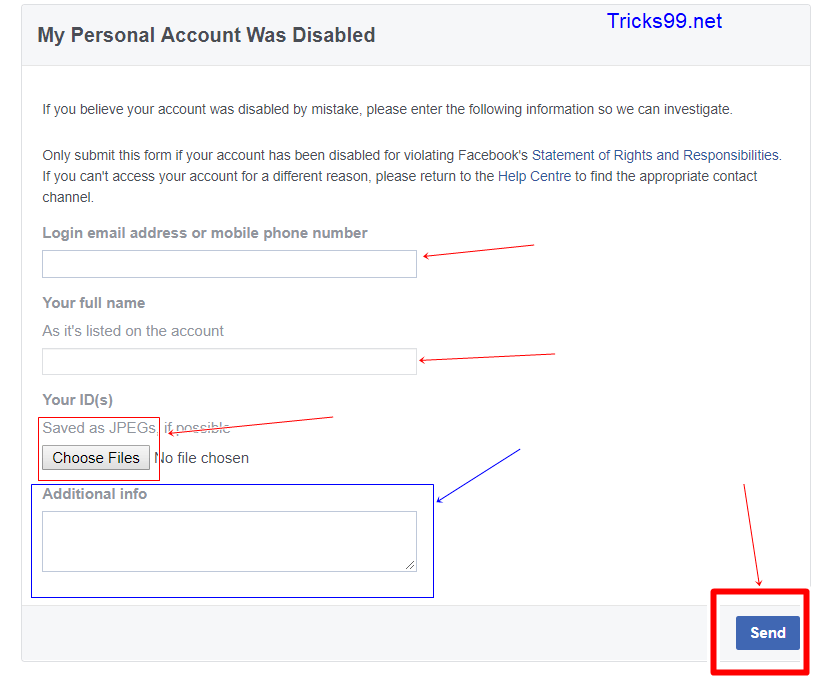 For example, service providers help make it possible to purchase various items on Facebook using your mobile phone. nine0003
For example, service providers help make it possible to purchase various items on Facebook using your mobile phone. nine0003
As part of these services, providers may use pixel tags to collect phone information to help you conveniently bill the user on a standard phone bill if you choose this option.
When you view, click on, or otherwise respond to ads on or off Facebook, partners use cookies or other similar technologies, such as local storage, to provide you with relevant services and ads. nine0003
For example: a partner using the platform may use cookies to customize the information you see when you use the application. The advertising partner may also use cookies to verify that Facebook has shown you ads and what the effect was.
This technology also allows partners to share information with Facebook, such as how you use their site or app.
How Facebook uses security cookies
Through tools such as cookies, Facebook can provide security and facilitate the use of the social network.
For example, with the always login confirmation feature, when someone logs into your account using a browser you've never used before, the system will block them and ask for additional information.
They also allow you to provide a login notification service that allows you to be informed when someone logs into your account and disable any active Facebook sessions. nine0003
In addition to protecting user accounts, cookies provide reassurance that people or devices accessing Facebook are not violating the rules.
Example: Some Facebook information is public and every Internet user can access it. Cookies help analyze the spectrum and frequency of requests, so that you can detect a user or device that is trying to "collect" information about users and prevent this practice. nine0003
Facebook uses these tools to make it easier for you to use the social network, for example, if you enter one character in your username or password incorrectly, but you have previously logged in from the same browser, the system will provide you with simple options for correcting typos, because it knows that you were able to login to Facebook before.
How Facebook uses cookies without an account
Facebook uses cookies even if you do not have an account or are not logged into your account. nine0003
In this case, cookies help, for example:
- to recognize and block the accounts of spam senders;
- restore account in case of loss of access;
- provide additional security features such as login notifications and login confirmation;
- prevent the registration of too young people with a false date of birth;
- evaluate and analyze the submitted advertisements;
- Recognize public computers to remind the user of the risk of using feature Remember me .
Facebook also uses cookies when you do not have a Facebook account but are logged into the social network: this is done to protect Facebook and its users from malicious activity.
For example, cookies help detect Denial of Service (DoS) attacks that overload the system and result in a denial of service or mass creation of fake accounts. nine0003
nine0003
What are pixel tags on Facebook
pixel tags (also known as clear GIFs, navigation signals) are small pieces of web page code that allow websites to view and place cookies. The data thus obtained may include the user's IP address, the display time and the type of browser used.
Facebook uses pixel tags on and off the social network, for example when you visit partner websites. With pixel tags, Facebook can read each cookie and also place a new cookie on your browser or device. nine0003
The pixel tags are used to customize the displayed information and analyze the user's use of products and services.
For example, pixel tags can be used to confirm that a person sees a Facebook ad in a particular browser and later purchased a product from the advertiser.
This allows you to show advertisers that their Facebook ad campaigns are working.
What is local storage on Facebook
Local storage is a standard technology that allows a site or application to store and download data on a user's computer, mobile phone, or other device.
An example use case would be to use the device's local memory or device cache to transfer HTML5 code. Most browsers have options to enable or disable the use of local memory.
Facebook uses local storage to analyze and improve its products and services and to support certain features. For example, it may save parts of the Facebook website on your device to make pages load faster on subsequent visits. nine0003
Local storage also allows you to provide some services to people without Internet access. For example, you can read and write messages in the Facebook Messenger app offline because the messages are stored in the device's local memory.
Using local memory helps you understand how you use a website, app, computer or mobile device. Facebook may use local storage on your device in situations where we cannot use cookies, such as in apps. nine0003
Cookie Policy - UniOne
ECOMZ HOLDING LIMITED, a company that operates under the UniSender brand ("UniSender" or "we") enables Users to manage electronic communications such as email and SMS and Viber messages, and provides analytics for the purposes of effectively managing mailing lists ("Services") through the website located at www. unisender.com (hereinafter referred to as the "Site").
unisender.com (hereinafter referred to as the "Site").
The technology we use to collect this information is called cookies (“Cookies”) and it helps us analyze trends, track and measure user traffic on our websites and services, and save targeted advertising. nine0003
This policy explains what the technology is and why we use it, as well as visitor and user rights to control its use.
What are cookies?
A "cookie" is a small piece of information that is stored on your computer by a web page. It is used to identify you to the web server. It tells the server who you are when you return to a page on the same site. Your browser will only send cookies to the domain that originally sent them to you. A cookie cannot run any programs, deliver viruses, or send information about your system. nine0003
Why do we use cookies?
Cookies allow us to provide, secure, and improve the Services by personalizing content, customizing and measuring ad performance, and creating a safer experience for you to browse our Site. We use cookies with tracking technologies. We use our own cookies and third party cookies.
We use cookies with tracking technologies. We use our own cookies and third party cookies.
Cookies are used for several purposes:
- Functionality. Cookies allow you to track your use of certain features and categories of Content. Going forward, this allows us to focus on what matters most to you, making Content features and elements more accessible and easier to navigate. nine0100
- Personalization. We use Cookies to track and tailor your interests based on your usage profile of the Site and Service.
- Analytics. We use cookies to analyze trends and understand what works on our website and what doesn't. This helps us provide the best and most relevant Content all the time.
- Communications. We use third party cookies to enable you to contact you quickly if you need to. nine0100
How long do cookies last on the end device?
How long Cookies are stored on the end device depends mainly on whether the Cookies are Persistent or Session Cookies.
- "Session" cookies are cookies that are stored until you close your browser.
- "Persistent" cookies are those that are stored until their expiration date or until you delete them (for example, by deleting your browsing history or by specifically deleting them through your browser settings). nine0100
Our Persistent Cookies are kept for a maximum of 6 months from the last visit to the Site.
The storage time of third party cookies must be checked using the links below. The retention period for individual Third Party Cookies can be up to 10 years. Third parties may improve their products by changing the expiration dates and changing the functionality of Cookies to some extent.
Rejecting Cookies on this Site
Most browsers are initially set to accept cookies. However, you can generally disable the use of cookies if you wish, by changing your Internet browser settings. nine0003
It is also possible to adjust your browser settings to accept certain cookies or notify you each time a new cookie is stored on your computer so you can decide when to accept or reject a cookie. Various resources are available to manage the use of cookies, and the "Help" section of your browser can help you.
Various resources are available to manage the use of cookies, and the "Help" section of your browser can help you.
The following are links to the Cookies documentation of popular browsers:
For options to manage settings for other browsers, check the documentation of their developers. nine0003
You can also disable or delete stored data similar to cookies, such as flash cookies, by managing your browser settings. Because our cookies allow you to access some of the features of our website, we recommend that you leave cookies enabled. Without certain Cookies, the functionality of using the Site and the Service may be reduced. Detailed information about the cookies used is provided later in this policy.
What types of Cookies do we use
COOKIE TYPE/PURPOSE | COOKIE SERVICE | COOKIE NAME |
Necessary Site Cookies: These Cookies are required only to enable you to use the UniSender Site and Service, including providing access to secure areas.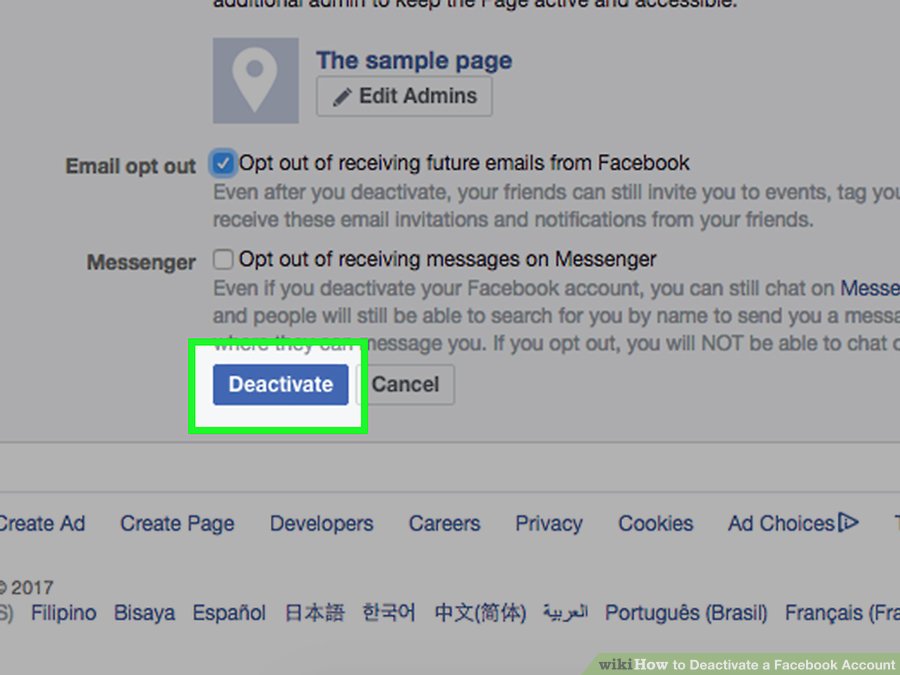 Due to their essential nature, you may not opt out of them, or opting out of them will result in the Site or Service not functioning properly. nine0288 However, you can block or delete them by changing your browser settings as described in the "Opt-out of cookies on this site" section. Due to their essential nature, you may not opt out of them, or opting out of them will result in the Site or Service not functioning properly. nine0288 However, you can block or delete them by changing your browser settings as described in the "Opt-out of cookies on this site" section. |
| __matchMedia _uni_calculated_country _uni_ab_tests __uni_leave_popup _uni_blog_popover _icl_current_language G_ENABLED_IDPS Lang last_login_id PHPSESSID rating_* Session_id spu_box_* unisenderBlog US_SESSID |
| c_user fr spin wd xs | |
Functionality cookies. These Cookies are used to improve the performance of our Site and Service, but are not essential to your use of them. However, some features of the Site may not be available without these Cookies. These Cookies are used to improve the performance of our Site and Service, but are not essential to your use of them. However, some features of the Site may not be available without these Cookies. |
| intercom-id-vsvggd2c |
| epopmechanic_sbjs_migrations | |
| Analytics cookies. These Cookies collect information to help us understand how our Site and Service are being used, how effective our marketing campaigns are, and to help us customize the Site and Service for you. nine0032 |
| sbjs_current sbjs_current_add sbjs_first sbjs_first_add sbjs_migrations sbjs_session sbjs_migrations |
| yabs-frequencyyabs-sid yandex_gid yandex_login yandexuid _ym_visorc_18772111 _ym_d _ym_d _ym_isad _ym_isad _ym_uid _ym_uid _ym_wasSynced | |
| gtm_id_ga _ga _gid CONSENT cid NID OGP OGPC OTZ _gcl_au ANID APISID SAPISID SIDCC SSID | |
| amplitude_id_* | |
| _vwo_uuid ||
| _HJID Ajs_anonymous_id Ajs_group_id AJS_USER_ID | |
Advertising service cookies. These cookies are used to show you more relevant ads. They also perform functions such as preventing the same ad from reappearing, ensuring that ads are properly displayed, and in some cases selecting ads based on your interests. nine0032 These cookies are used to show you more relevant ads. They also perform functions such as preventing the same ad from reappearing, ensuring that ads are properly displayed, and in some cases selecting ads based on your interests. nine0032 |
| APISIDNID SID 1P_JAR AID |
| IDEDSID __ar_v4 | |
| __adroll_fpc __adroll csrftoken _hp2_id.1766097971 ajs_anonymous_id ajs_group_id ajs_user_id | |
| m_pixel_ratiopl
Third parties develop services independently of us, and we cannot know for sure the specific technology for providing services using their Cookies.

